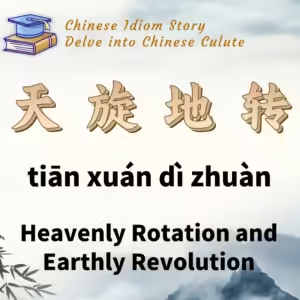
Chinese Idiom: 一片冰心 (Yi Pian Bing Xin)
English Translation: A Heart of Pure Ice
pīn yīn: yī piàn bīng xīn
Idiom Meaning: This idiom symbolizes a person’s integrity, purity, and incorruptibility, indicating a heart that remains honest and untainted by evil.
Historical Source: Tang Dynasty, Wang Changling’s poem “Farewell to Xin Jian at Hibiscus Tower.”
Idiom Story: Wang Changling passed the imperial examination at the age of thirty and entered the officialdom during a time when Emperor Xuanzong and Yang Guifei were indulging in pleasure and favoring corrupt officials. The state of governance was deteriorating, and the country was plagued by wars. Through his emotional poetry in various forms, such as border poems, palace laments, and farewell verses, Wang Changling exposed and criticized the prevailing corruption and praised just wars fought to maintain national unity. In his poem “From the Army,” he extolled the determination and heroism of soldiers defending the nation. The poem consists of four lines:
青海长云暗雪山,孤城遥望玉门关。 黄沙百战穿金甲,不破楼兰终不还。
Some key terms in the poem:
- 青海: Refers to Qinghai Lake, occupied by Tibetan nobles during the Tang Dynasty, a significant border issue.
- 玉门关: A place near present-day Dunhuang, Gansu, another border area invaded by Turks.
- 穿: The armor is worn out from many battles.
- 破楼兰: Refers to an ancient story symbolizing the pacification of border invaders.
The poem’s general meaning is: In this critical border area, battle clouds loom as they resist the Tibetan and Turkic invasions. The soldiers live and fight in the desert year-round, wearing out their armor, yet their morale remains high, determined not to return until the enemy is defeated.
Wang Changling faced demotions due to his opposition to powerful nobles but maintained his integrity and purity. In his famous poem “Farewell to Xin Jian at Hibiscus Tower,” he expressed this sentiment. The poem has four lines:
寒雨连江夜入吴,平明送客楚山孤。 洛阳亲友如相问,一片冰心在玉壶。
Some key terms in the poem:
- 寒雨: Symbolizes the chilling atmosphere.
- 吴: An ancient name for the area around present-day Jiangsu province.
- 楚山: Refers to the mountains in Changzhou, Jiangsu, historically part of Chu.
- 冰心: Describes a pure and untainted heart.
- 玉壶: Symbolizes clarity and purity.
The poem’s general meaning is: On a cold, rainy night, the rain falls into the river in Wu. At dawn, I see you off, feeling even more solitary by the distant Chu mountains. When you return to Luoyang, if our friends ask about me, tell them my heart is as pure as ice kept in a jade jar.
From the line “a heart of pure ice kept in a jade jar,” the idiom “a heart of pure ice” (一片冰心) emerged, symbolizing a person’s unwavering integrity and purity.






